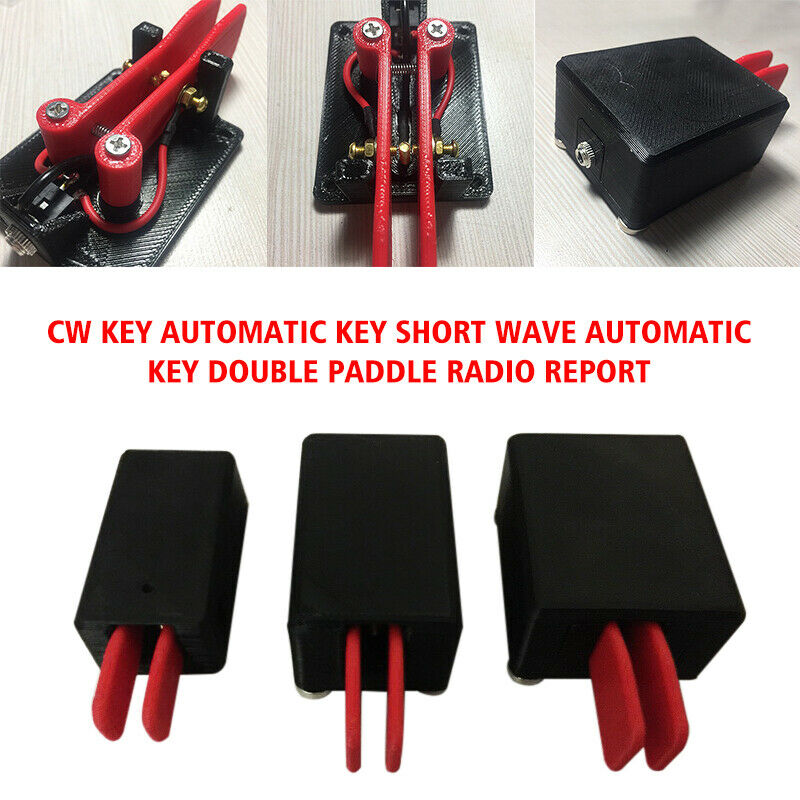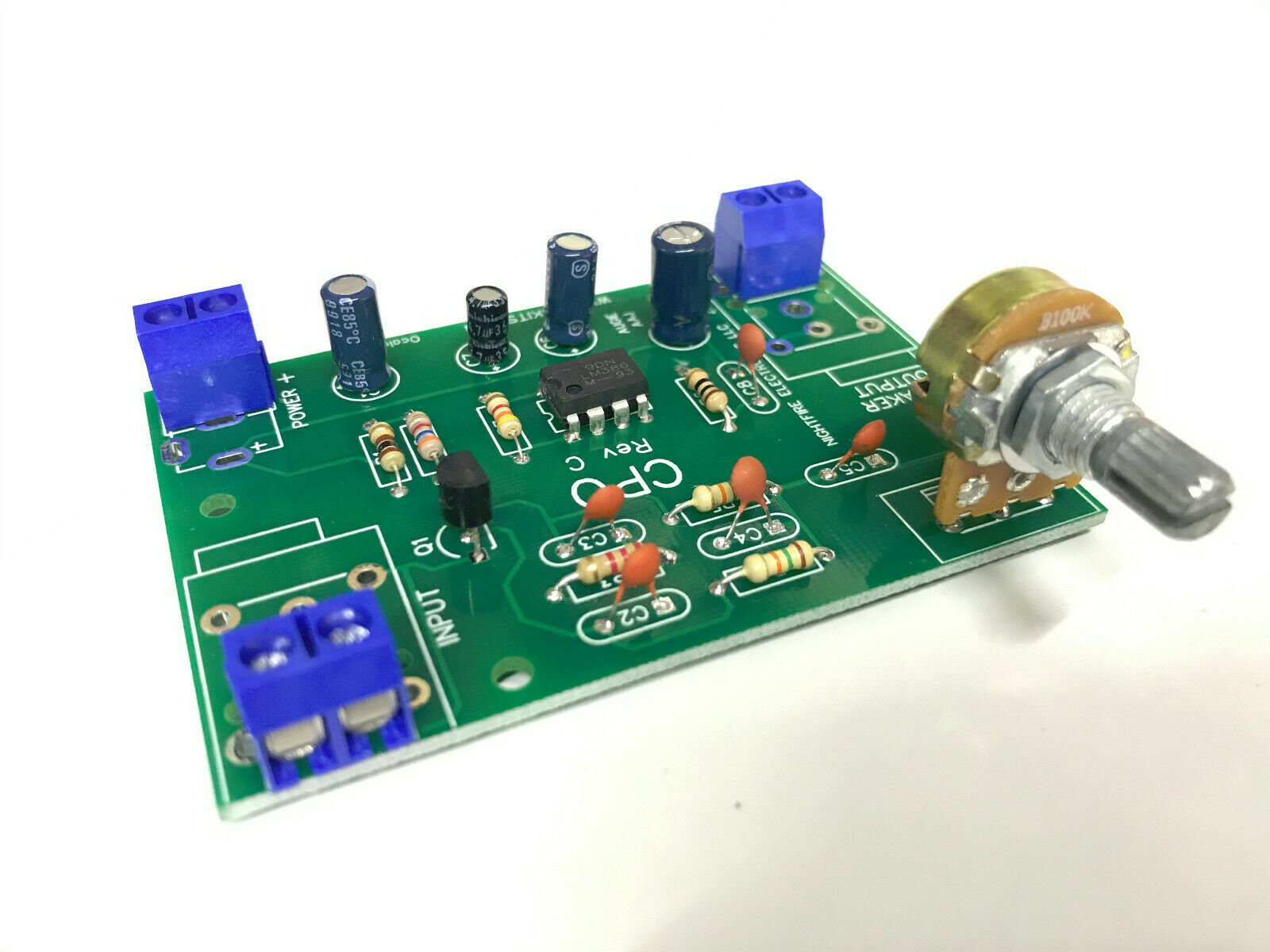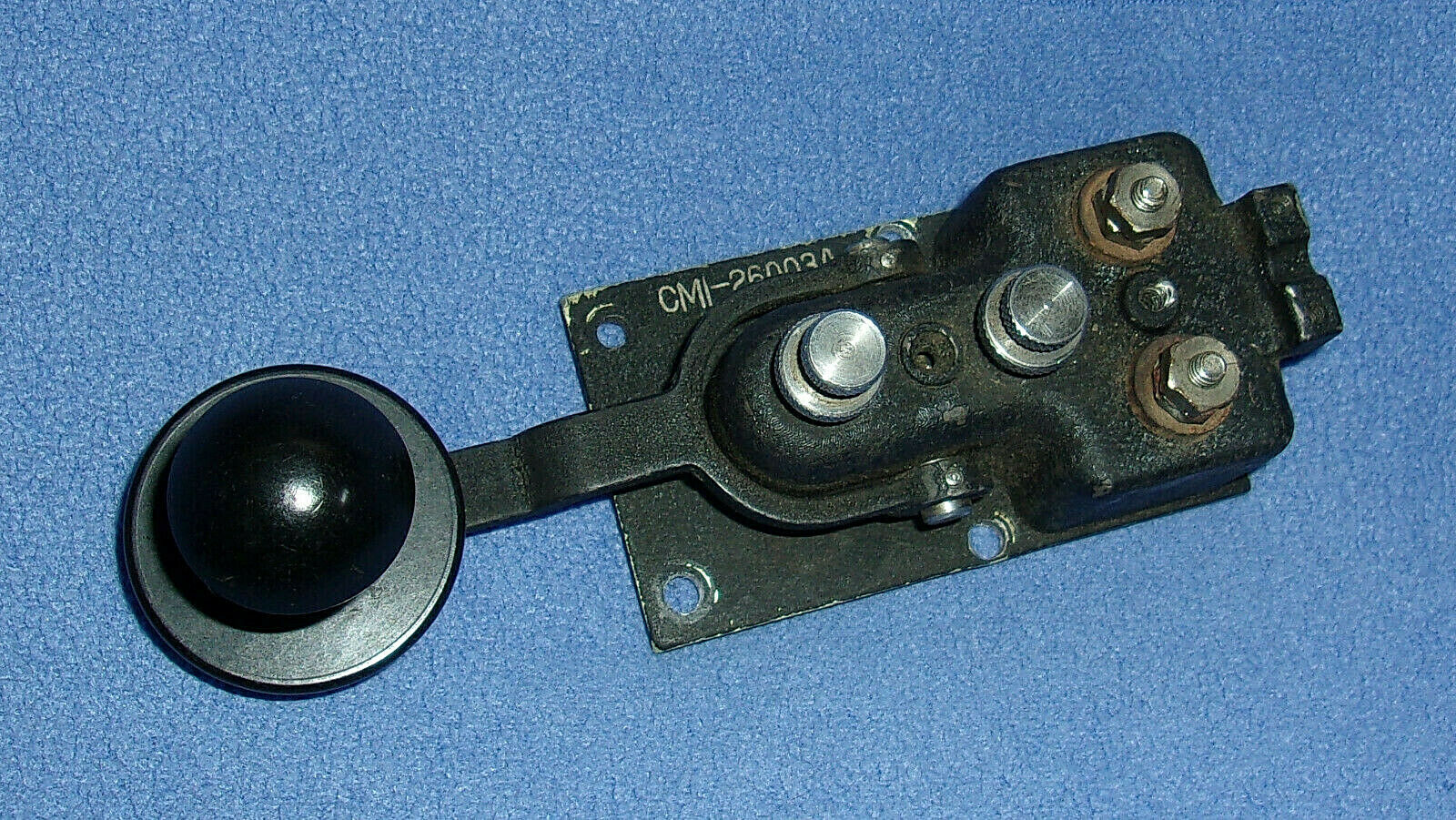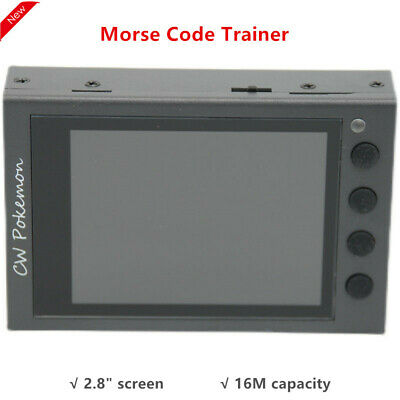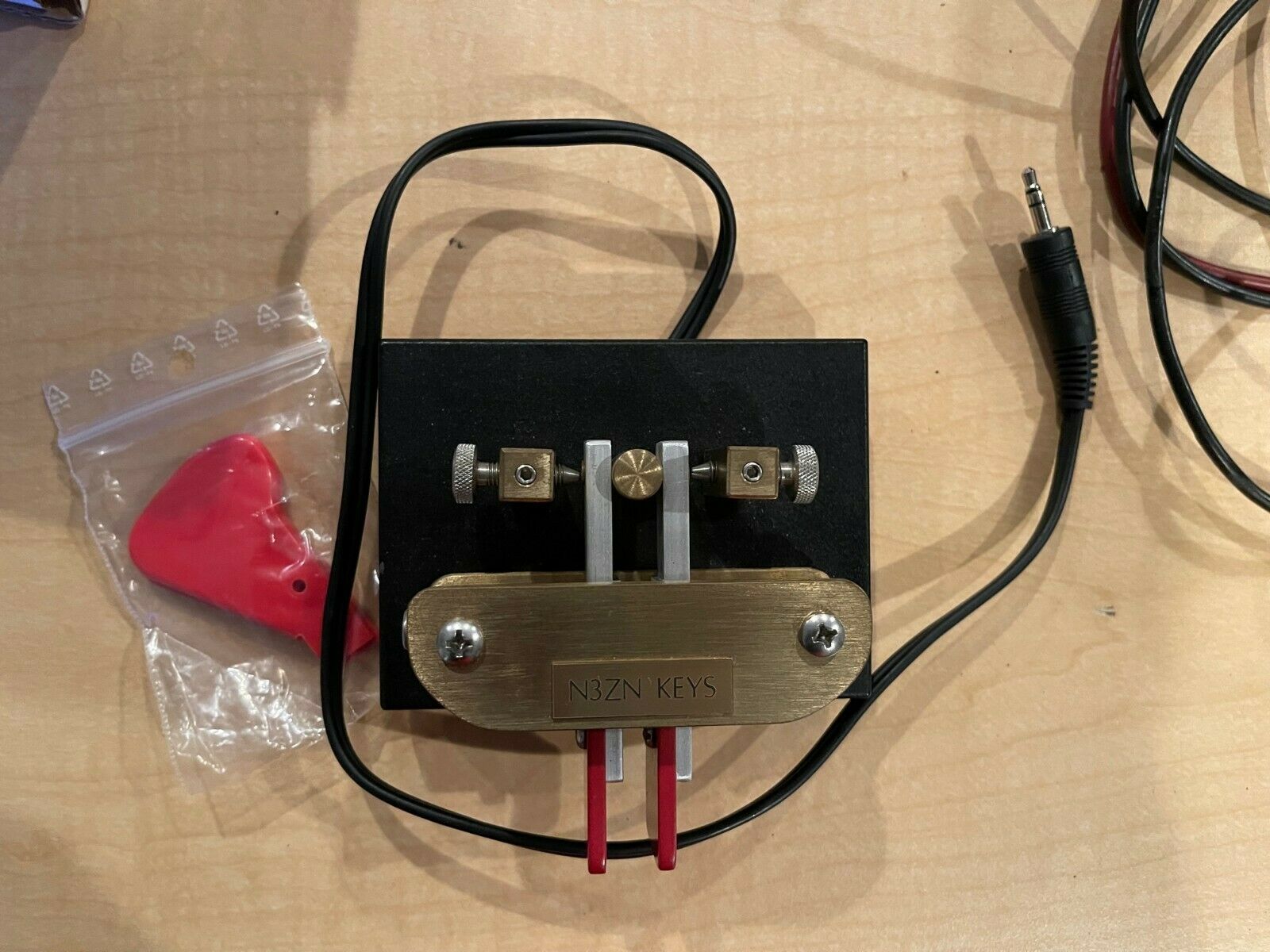-40%
CW Keyer board ,YACK open source, memories, completely adjustable Keyer
$ 6.3
- Description
- Size Guide
Description
Note, the word "Kit" in the title is because the board is just the working part, it may need a case, or a connector for your key, if you don't wire it in. The board is not a kit, in that you get what is pictured, and assembled board, and battery.This is a YACK (Yet Another CW Keyer) , it is open source and has been modified to have memories, and is very good for CW practice. It has call signs and other data in memory to play back. It has a transistor to key some radios, but with a little modification, it can key any radio. The transistor, like all else in this keyer, can swing high, or swing low, you adjust that by pressing a push button, to enter program mode, and send the command via your CW paddle. The complete document is in PDF format, and the firmware was burned into the TINY85 microcontroller, and tested. So each board is tested. The Tiny85 has much more memory than a Tiny13 that you see on other electronic CW keyers. This keyer is smart, and has many functions. It has a beacon mode, and other features.
IMPORTANT: The board requires a Piezo, of which I now include one with the board . I have tested this with several Piezo type speakers, and they all worked,. The board is marked as to the polarity of the Piezo, and there are two more tabs for a single pole push button, which is used to enter program mode. The next two contacts are to key a radio, but most don't need a keyer for a radio, most modern radios have a built in keyer. This keyer is ideal for practice, as it can send code to you, and it is controlled and programmed by sending CW commands. So one simple example is to adjust the speed, you hold the program button down, and one side of your paddle will slow it down, and the other side will speed it up, just release the program button when you like the speed you have selected. There are commands that tell you the speed you set it for, and much more. There are three contacts to connect a key, they are marked as left, ground, and Right, however, you can flip the paddles around in programming mode. If you send your email, I will forward the manual. Ebay has blocked and attempt to post the URL here.
You will have to message me for the manual, as Ebay does not allow links to the internet in posts.
There are many things that can be changed, or programmed into the keyer, even memories to enter for a Beacon mode. I would have not wasted my time in making this board if i didn't think it would help many who want to learn CW. There is an excellent youtube video to demonstrate the keyer by the ham who enhanced the firmware in it.
You will have to supply the jack for your paddle.
1) Now the coin cell is included. a CR2032 lithium coin battery. The keyer can run off of 3 volts up to 5 volts. The 3 volt coin cell lasts a very long time, as the keyer goes to sleep if you don't touch it for while. If you want the battery holder off the board just ask me to do that before you purchase. This would help those that put these boards into older radios, you can find power inside the radio and put a very small regulator on it to power the board. The drain on the board is minimal.
2) It comes with a big piezo speaker, it can not drive a speaker without a simple amplifier, it can drive a 3v piezo fine. I tried to use a small speaker, and made a simple transistor amplifier, but that required more power to drive the speaker. The very best Piezo is the
PKB8-4A0, but others will work as well. The one I now supply works very well. You can put a switch on it, if you use it in a radio,
3) The connection to your radio, is up to you, Hopefully if you are a ham you will know how to do that. I only say, the transistor can key high, or low, and that is changed in programming. Download the manual, or ask me for it. The transistor on the board is a 2n2222
4) The jack for your key. It can be a 3.5 mm stereo jack, or it can be a 1/4" stereo/mono jack, or you can simply wire your key right into the board. That is up to you.
5) if you want to put this all in a case with your jacks and programming
button
all nicely mounted, that is up to you. The project boxes you can get on Ebay, The
lithium
battery is included with the board.
6) It now includes a big piezo, a push button and battery.
7) Due to rising costs the buzzers are costing me more, so costs are going up.


